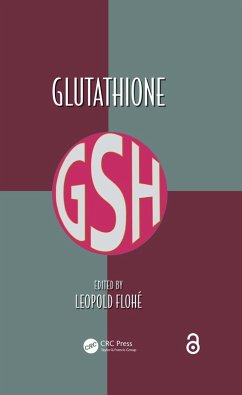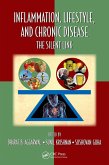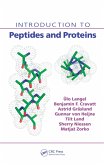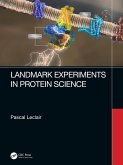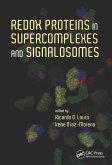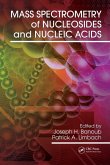Glutathione (eBook, PDF)
Redaktion: Flohe, Leopold
51,95 €
51,95 €
inkl. MwSt.
Sofort per Download lieferbar

26 °P sammeln
51,95 €
Als Download kaufen

51,95 €
inkl. MwSt.
Sofort per Download lieferbar

26 °P sammeln
Jetzt verschenken
Alle Infos zum eBook verschenken
51,95 €
inkl. MwSt.
Sofort per Download lieferbar
Alle Infos zum eBook verschenken

26 °P sammeln
Glutathione (eBook, PDF)
Redaktion: Flohe, Leopold
- Format: PDF
- Merkliste
- Auf die Merkliste
- Bewerten Bewerten
- Teilen
- Produkt teilen
- Produkterinnerung
- Produkterinnerung

Bitte loggen Sie sich zunächst in Ihr Kundenkonto ein oder registrieren Sie sich bei
bücher.de, um das eBook-Abo tolino select nutzen zu können.
Hier können Sie sich einloggen
Hier können Sie sich einloggen
Sie sind bereits eingeloggt. Klicken Sie auf 2. tolino select Abo, um fortzufahren.

Bitte loggen Sie sich zunächst in Ihr Kundenkonto ein oder registrieren Sie sich bei bücher.de, um das eBook-Abo tolino select nutzen zu können.
The book contains an update of glutathione biosynthesis with special emphasis on its regulation in adaptive stress responses. Other chapters review glutathione transport systems and glutathione peroxidases and their differences in substrate specificities and localization.
- Geräte: PC
- mit Kopierschutz
- eBook Hilfe
- Größe: 22.59MB
Andere Kunden interessierten sich auch für
![BIOS Instant Notes in Biochemistry (eBook, PDF) BIOS Instant Notes in Biochemistry (eBook, PDF)]() David HamesBIOS Instant Notes in Biochemistry (eBook, PDF)27,95 €
David HamesBIOS Instant Notes in Biochemistry (eBook, PDF)27,95 €![Inflammation, Lifestyle and Chronic Diseases (eBook, PDF) Inflammation, Lifestyle and Chronic Diseases (eBook, PDF)]() Inflammation, Lifestyle and Chronic Diseases (eBook, PDF)197,95 €
Inflammation, Lifestyle and Chronic Diseases (eBook, PDF)197,95 €![Introduction to Peptides and Proteins (eBook, PDF) Introduction to Peptides and Proteins (eBook, PDF)]() Ulo LangelIntroduction to Peptides and Proteins (eBook, PDF)65,95 €
Ulo LangelIntroduction to Peptides and Proteins (eBook, PDF)65,95 €![Landmark Experiments in Protein Science (eBook, PDF) Landmark Experiments in Protein Science (eBook, PDF)]() Pascal LeclairLandmark Experiments in Protein Science (eBook, PDF)52,95 €
Pascal LeclairLandmark Experiments in Protein Science (eBook, PDF)52,95 €![Enzyme Kinetics and Mechanism (eBook, PDF) Enzyme Kinetics and Mechanism (eBook, PDF)]() Paul F. CookEnzyme Kinetics and Mechanism (eBook, PDF)87,95 €
Paul F. CookEnzyme Kinetics and Mechanism (eBook, PDF)87,95 €![Redox Proteins in Supercomplexes and Signalosomes (eBook, PDF) Redox Proteins in Supercomplexes and Signalosomes (eBook, PDF)]() Redox Proteins in Supercomplexes and Signalosomes (eBook, PDF)67,95 €
Redox Proteins in Supercomplexes and Signalosomes (eBook, PDF)67,95 €![Mass Spectrometry of Nucleosides and Nucleic Acids (eBook, PDF) Mass Spectrometry of Nucleosides and Nucleic Acids (eBook, PDF)]() Mass Spectrometry of Nucleosides and Nucleic Acids (eBook, PDF)66,95 €
Mass Spectrometry of Nucleosides and Nucleic Acids (eBook, PDF)66,95 €-
-
-
The book contains an update of glutathione biosynthesis with special emphasis on its regulation in adaptive stress responses. Other chapters review glutathione transport systems and glutathione peroxidases and their differences in substrate specificities and localization.
Dieser Download kann aus rechtlichen Gründen nur mit Rechnungsadresse in A, B, BG, CY, CZ, D, DK, EW, E, FIN, F, GR, HR, H, IRL, I, LT, L, LR, M, NL, PL, P, R, S, SLO, SK ausgeliefert werden.
Produktdetails
- Produktdetails
- Verlag: Taylor & Francis eBooks
- Seitenzahl: 410
- Erscheinungstermin: 29. August 2018
- Englisch
- ISBN-13: 9781351261753
- Artikelnr.: 56890720
- Verlag: Taylor & Francis eBooks
- Seitenzahl: 410
- Erscheinungstermin: 29. August 2018
- Englisch
- ISBN-13: 9781351261753
- Artikelnr.: 56890720
- Herstellerkennzeichnung Die Herstellerinformationen sind derzeit nicht verfügbar.
Leopold Flohé is Professor at the Universidad de la Republica Uruguay in Montevideo, Uruguay. He also Distinguishing Visiting Professor in the Department of Molecular Medicine at the University of Padova in Italy. He has been recognized by PubMed.gov as a Redox Pioneer because has published an article on antioxidant/redox biology, as first author, that has been cited more than 1,000 times, and more than 20 articles have been cited more than 100 times. He obtained the medical doctorate at the Institute of Pharmacology and Toxicology at the University of Tübingen, Germany, in 1968. He held positions in both Academia (Tübingen, Aachen, and Braunschweig, Germany) and industry (Aachen). He is now operating the biotech company MOLISA in Magdeburg, Germany, while teaching as guest professor at the local university. Dr. Flohé is the pioneer who established the selenoprotein nature of glutathione peroxidase (GPx), the first and, for almost 10 years, the only selenoprotein known in animals. His work was pivotal to link the essential trace element selenium to metabolic processes, which led the Food and Drug Administration (FDA) to approve selenium supplementation for humans in 1980, and stimulated selenium biochemistry in general. In recent years, he embarked on investigating how pathogens protect themselves from oxidative killing. His studies on the thiol-dependent hydroperoxide metabolism of trypanosomatids and mycobacteria defined molecular drug targets, paving the way to new therapeutic strategies for neglected diseases affecting the people of developing countries.
Contents
Series
Preface.............................................................................................................xi
Editor's
Preface.......................................................................................................
xiii
Editor
Biography......................................................................................................xix
List of Contributors
.................................................................................................xxi
Part I Biosynthesis, Compartmentation,
and Transport of Glutathione
Chapter 1 Biosynthesis of Glutathione and Its
Regulation....................................3
Henry Jay Forman, Hongqiao Zhang, and Terrance J. Kavanagh
Chapter 2 Renal Glutathione Transport Systems: Roles in Redox
Homeostasis, Cytoprotection, and
Bioactivation................................ 35
Lawrence H. Lash
Part II Glutathione-Dependent
Hydroperoxide Metabolism
Chapter 3 The Catalytic Mechanism of Glutathione
Peroxidases....................... 53
Laura Orian, Giorgio Cozza, Matilde Maiorino, Stefano
Toppo, and Fulvio Ursini
Chapter 4 GPx1-Dependent Regulatory Processes in Health and
Disease......... 67
Diane E. Handy and Joseph Loscalzo
Chapter 5 Glutathione Peroxidase 1 as a Modulator of Insulin Production
and Signaling: Implications for Its Dual Role in Diabetes.................
81
Holger Steinbrenner and Lars-Oliver Klotz
Chapter 6 GPx2 Role in Physiology and
Carcinogenesis....................................95
Anna P. Kipp
Chapter 7 GPx4: From Prevention of Lipid Peroxidation to
Spermatogenesis and
Back................................................................ 111
Matilde Maiorino, Antonella Roveri, and Fulvio Ursini
Chapter 8 Thiols, Glutathione, GPx4, and Lipid Metabolism at the
Crossroads of Cell Death and
Survival............................................. 129
José Pedro Friedmann Angeli, Valerian E. Kagan, and Marcus
Conrad
Chapter 9 Peroxiredoxin 6 as Glutathione
Peroxidase...................................... 143
Yefim Manevich
Chapter 10 Glutathione Peroxidases and the Thyroid
Gland.............................. 161
Lutz Schomburg
Part III Conjugations and Isomerizations
Chapter 11 Glutathione Transferases: From the Test Tube to the
Cell................ 175
Bengt Mannervik and Birgitta Sjödin
Chapter 12 Protein S-glutathionylation and Glutathione S-transferase
P............ 201
Kenneth D. Tew
Chapter 13 The Role of Glutathione in Biosynthetic Pathways and
Regulation of the Eicosanoid
Metabolism........................................ 215
Ralf Morgenstern, Leopold Flohé, Jesper Z. Haeggström, and
Per-Johan Jakobsson
Chapter 14 Nitric Oxide and S
-Nitrosoglutathione..............................................227
Iain L. O. Buxton and Scott D. Barnett
Part IV The Glutaredoxins
Chapter 15 The Catalytic Mechanism of
Glutaredoxins..................................... 251
Linda Liedgens and Marcel Deponte
Chapter 16 The Role of Glutaredoxins in the
Brain............................................263
Carsten Bernd, Anna Dorothee Engelke, Klaudia Lepka, and
Lars Bräutigam
Part V Glutathione Derivatives and
Substitutes in Pathogenic Microorganisms
Chapter 17 Biosynthesis of Polyamine-Glutathione Derivatives in
Enterobacteria and Kinetoplastida
...................................................285
Marcelo A. Comini
Chapter 18 Trypanothione Functions in
Kinetoplastida......................................307
Martín Hugo, Madia Trujillo, Lucía Piacenza, and Rafael Radi
Chapter 19 Mycothiol, a Low-Molecular-Weight Thiol Drafted for
Oxidative Stress Defense
Duty......................................................... 331
Leonardo Astolfi Rosado, Brandán Pedre, and Joris Messens
Chapter 20 Biosynthesis and Functions of Bacillithiol in Firmicutes
................. 357
Quach Ngoc Tung, Nico Linzner, Vu Van Loi,
and Haike Antelmann
Index.......................................................................................................................
379
Series
Preface.............................................................................................................xi
Editor's
Preface.......................................................................................................
xiii
Editor
Biography......................................................................................................xix
List of Contributors
.................................................................................................xxi
Part I Biosynthesis, Compartmentation,
and Transport of Glutathione
Chapter 1 Biosynthesis of Glutathione and Its
Regulation....................................3
Henry Jay Forman, Hongqiao Zhang, and Terrance J. Kavanagh
Chapter 2 Renal Glutathione Transport Systems: Roles in Redox
Homeostasis, Cytoprotection, and
Bioactivation................................ 35
Lawrence H. Lash
Part II Glutathione-Dependent
Hydroperoxide Metabolism
Chapter 3 The Catalytic Mechanism of Glutathione
Peroxidases....................... 53
Laura Orian, Giorgio Cozza, Matilde Maiorino, Stefano
Toppo, and Fulvio Ursini
Chapter 4 GPx1-Dependent Regulatory Processes in Health and
Disease......... 67
Diane E. Handy and Joseph Loscalzo
Chapter 5 Glutathione Peroxidase 1 as a Modulator of Insulin Production
and Signaling: Implications for Its Dual Role in Diabetes.................
81
Holger Steinbrenner and Lars-Oliver Klotz
Chapter 6 GPx2 Role in Physiology and
Carcinogenesis....................................95
Anna P. Kipp
Chapter 7 GPx4: From Prevention of Lipid Peroxidation to
Spermatogenesis and
Back................................................................ 111
Matilde Maiorino, Antonella Roveri, and Fulvio Ursini
Chapter 8 Thiols, Glutathione, GPx4, and Lipid Metabolism at the
Crossroads of Cell Death and
Survival............................................. 129
José Pedro Friedmann Angeli, Valerian E. Kagan, and Marcus
Conrad
Chapter 9 Peroxiredoxin 6 as Glutathione
Peroxidase...................................... 143
Yefim Manevich
Chapter 10 Glutathione Peroxidases and the Thyroid
Gland.............................. 161
Lutz Schomburg
Part III Conjugations and Isomerizations
Chapter 11 Glutathione Transferases: From the Test Tube to the
Cell................ 175
Bengt Mannervik and Birgitta Sjödin
Chapter 12 Protein S-glutathionylation and Glutathione S-transferase
P............ 201
Kenneth D. Tew
Chapter 13 The Role of Glutathione in Biosynthetic Pathways and
Regulation of the Eicosanoid
Metabolism........................................ 215
Ralf Morgenstern, Leopold Flohé, Jesper Z. Haeggström, and
Per-Johan Jakobsson
Chapter 14 Nitric Oxide and S
-Nitrosoglutathione..............................................227
Iain L. O. Buxton and Scott D. Barnett
Part IV The Glutaredoxins
Chapter 15 The Catalytic Mechanism of
Glutaredoxins..................................... 251
Linda Liedgens and Marcel Deponte
Chapter 16 The Role of Glutaredoxins in the
Brain............................................263
Carsten Bernd, Anna Dorothee Engelke, Klaudia Lepka, and
Lars Bräutigam
Part V Glutathione Derivatives and
Substitutes in Pathogenic Microorganisms
Chapter 17 Biosynthesis of Polyamine-Glutathione Derivatives in
Enterobacteria and Kinetoplastida
...................................................285
Marcelo A. Comini
Chapter 18 Trypanothione Functions in
Kinetoplastida......................................307
Martín Hugo, Madia Trujillo, Lucía Piacenza, and Rafael Radi
Chapter 19 Mycothiol, a Low-Molecular-Weight Thiol Drafted for
Oxidative Stress Defense
Duty......................................................... 331
Leonardo Astolfi Rosado, Brandán Pedre, and Joris Messens
Chapter 20 Biosynthesis and Functions of Bacillithiol in Firmicutes
................. 357
Quach Ngoc Tung, Nico Linzner, Vu Van Loi,
and Haike Antelmann
Index.......................................................................................................................
379
Contents
Series
Preface.............................................................................................................xi
Editor's
Preface.......................................................................................................
xiii
Editor
Biography......................................................................................................xix
List of Contributors
.................................................................................................xxi
Part I Biosynthesis, Compartmentation,
and Transport of Glutathione
Chapter 1 Biosynthesis of Glutathione and Its
Regulation....................................3
Henry Jay Forman, Hongqiao Zhang, and Terrance J. Kavanagh
Chapter 2 Renal Glutathione Transport Systems: Roles in Redox
Homeostasis, Cytoprotection, and
Bioactivation................................ 35
Lawrence H. Lash
Part II Glutathione-Dependent
Hydroperoxide Metabolism
Chapter 3 The Catalytic Mechanism of Glutathione
Peroxidases....................... 53
Laura Orian, Giorgio Cozza, Matilde Maiorino, Stefano
Toppo, and Fulvio Ursini
Chapter 4 GPx1-Dependent Regulatory Processes in Health and
Disease......... 67
Diane E. Handy and Joseph Loscalzo
Chapter 5 Glutathione Peroxidase 1 as a Modulator of Insulin Production
and Signaling: Implications for Its Dual Role in Diabetes.................
81
Holger Steinbrenner and Lars-Oliver Klotz
Chapter 6 GPx2 Role in Physiology and
Carcinogenesis....................................95
Anna P. Kipp
Chapter 7 GPx4: From Prevention of Lipid Peroxidation to
Spermatogenesis and
Back................................................................ 111
Matilde Maiorino, Antonella Roveri, and Fulvio Ursini
Chapter 8 Thiols, Glutathione, GPx4, and Lipid Metabolism at the
Crossroads of Cell Death and
Survival............................................. 129
José Pedro Friedmann Angeli, Valerian E. Kagan, and Marcus
Conrad
Chapter 9 Peroxiredoxin 6 as Glutathione
Peroxidase...................................... 143
Yefim Manevich
Chapter 10 Glutathione Peroxidases and the Thyroid
Gland.............................. 161
Lutz Schomburg
Part III Conjugations and Isomerizations
Chapter 11 Glutathione Transferases: From the Test Tube to the
Cell................ 175
Bengt Mannervik and Birgitta Sjödin
Chapter 12 Protein S-glutathionylation and Glutathione S-transferase
P............ 201
Kenneth D. Tew
Chapter 13 The Role of Glutathione in Biosynthetic Pathways and
Regulation of the Eicosanoid
Metabolism........................................ 215
Ralf Morgenstern, Leopold Flohé, Jesper Z. Haeggström, and
Per-Johan Jakobsson
Chapter 14 Nitric Oxide and S
-Nitrosoglutathione..............................................227
Iain L. O. Buxton and Scott D. Barnett
Part IV The Glutaredoxins
Chapter 15 The Catalytic Mechanism of
Glutaredoxins..................................... 251
Linda Liedgens and Marcel Deponte
Chapter 16 The Role of Glutaredoxins in the
Brain............................................263
Carsten Bernd, Anna Dorothee Engelke, Klaudia Lepka, and
Lars Bräutigam
Part V Glutathione Derivatives and
Substitutes in Pathogenic Microorganisms
Chapter 17 Biosynthesis of Polyamine-Glutathione Derivatives in
Enterobacteria and Kinetoplastida
...................................................285
Marcelo A. Comini
Chapter 18 Trypanothione Functions in
Kinetoplastida......................................307
Martín Hugo, Madia Trujillo, Lucía Piacenza, and Rafael Radi
Chapter 19 Mycothiol, a Low-Molecular-Weight Thiol Drafted for
Oxidative Stress Defense
Duty......................................................... 331
Leonardo Astolfi Rosado, Brandán Pedre, and Joris Messens
Chapter 20 Biosynthesis and Functions of Bacillithiol in Firmicutes
................. 357
Quach Ngoc Tung, Nico Linzner, Vu Van Loi,
and Haike Antelmann
Index.......................................................................................................................
379
Series
Preface.............................................................................................................xi
Editor's
Preface.......................................................................................................
xiii
Editor
Biography......................................................................................................xix
List of Contributors
.................................................................................................xxi
Part I Biosynthesis, Compartmentation,
and Transport of Glutathione
Chapter 1 Biosynthesis of Glutathione and Its
Regulation....................................3
Henry Jay Forman, Hongqiao Zhang, and Terrance J. Kavanagh
Chapter 2 Renal Glutathione Transport Systems: Roles in Redox
Homeostasis, Cytoprotection, and
Bioactivation................................ 35
Lawrence H. Lash
Part II Glutathione-Dependent
Hydroperoxide Metabolism
Chapter 3 The Catalytic Mechanism of Glutathione
Peroxidases....................... 53
Laura Orian, Giorgio Cozza, Matilde Maiorino, Stefano
Toppo, and Fulvio Ursini
Chapter 4 GPx1-Dependent Regulatory Processes in Health and
Disease......... 67
Diane E. Handy and Joseph Loscalzo
Chapter 5 Glutathione Peroxidase 1 as a Modulator of Insulin Production
and Signaling: Implications for Its Dual Role in Diabetes.................
81
Holger Steinbrenner and Lars-Oliver Klotz
Chapter 6 GPx2 Role in Physiology and
Carcinogenesis....................................95
Anna P. Kipp
Chapter 7 GPx4: From Prevention of Lipid Peroxidation to
Spermatogenesis and
Back................................................................ 111
Matilde Maiorino, Antonella Roveri, and Fulvio Ursini
Chapter 8 Thiols, Glutathione, GPx4, and Lipid Metabolism at the
Crossroads of Cell Death and
Survival............................................. 129
José Pedro Friedmann Angeli, Valerian E. Kagan, and Marcus
Conrad
Chapter 9 Peroxiredoxin 6 as Glutathione
Peroxidase...................................... 143
Yefim Manevich
Chapter 10 Glutathione Peroxidases and the Thyroid
Gland.............................. 161
Lutz Schomburg
Part III Conjugations and Isomerizations
Chapter 11 Glutathione Transferases: From the Test Tube to the
Cell................ 175
Bengt Mannervik and Birgitta Sjödin
Chapter 12 Protein S-glutathionylation and Glutathione S-transferase
P............ 201
Kenneth D. Tew
Chapter 13 The Role of Glutathione in Biosynthetic Pathways and
Regulation of the Eicosanoid
Metabolism........................................ 215
Ralf Morgenstern, Leopold Flohé, Jesper Z. Haeggström, and
Per-Johan Jakobsson
Chapter 14 Nitric Oxide and S
-Nitrosoglutathione..............................................227
Iain L. O. Buxton and Scott D. Barnett
Part IV The Glutaredoxins
Chapter 15 The Catalytic Mechanism of
Glutaredoxins..................................... 251
Linda Liedgens and Marcel Deponte
Chapter 16 The Role of Glutaredoxins in the
Brain............................................263
Carsten Bernd, Anna Dorothee Engelke, Klaudia Lepka, and
Lars Bräutigam
Part V Glutathione Derivatives and
Substitutes in Pathogenic Microorganisms
Chapter 17 Biosynthesis of Polyamine-Glutathione Derivatives in
Enterobacteria and Kinetoplastida
...................................................285
Marcelo A. Comini
Chapter 18 Trypanothione Functions in
Kinetoplastida......................................307
Martín Hugo, Madia Trujillo, Lucía Piacenza, and Rafael Radi
Chapter 19 Mycothiol, a Low-Molecular-Weight Thiol Drafted for
Oxidative Stress Defense
Duty......................................................... 331
Leonardo Astolfi Rosado, Brandán Pedre, and Joris Messens
Chapter 20 Biosynthesis and Functions of Bacillithiol in Firmicutes
................. 357
Quach Ngoc Tung, Nico Linzner, Vu Van Loi,
and Haike Antelmann
Index.......................................................................................................................
379
